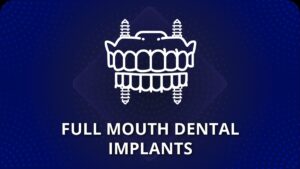The Impact of Nutrition on Dental Implant Healing and Longevity
Dental implants are a fantastic solution for replacing missing teeth, offering a long-lasting, functional and natural-looking alternative. But did you know that what you eat plays a key role in how well your dental implants heal and how long they last?
After dental implant surgery, your body needs the right nutrients to heal properly. Just like any other surgical procedure, the healing process for dental implants depends on the strength of your immune system, bone regeneration and soft tissue repair. Here’s how it helps:
While it’s important to focus on nutritious, healing-promoting foods, there are also some you should avoid in the initial stages after your implant procedure:
Once your dental implant has successfully healed, your diet will still play an important role in ensuring the long-term success and longevity of your new smile. By maintaining good nutrition, you can help keep your gums and surrounding bone healthy. Eating a diet rich in vitamin C, fiber and calcium will strengthen your connective tissue, clean and stimulate the gums and support bone health. Don’t forget to stay hydrated, too—drinking plenty of water is a key part of good oral health.
A healthy diet and a solid oral care routine will keep your implants—and your smile—strong for years to come. Interested in learning more about dental implants? Call the Cleveland Implant Institute to schedule a consultation today.
Mentor Office
6303 Center St
Mentor, OH 44060-2467
Concord Office
8245 Auburn Road
Concord, OH 44077






